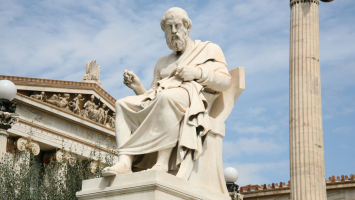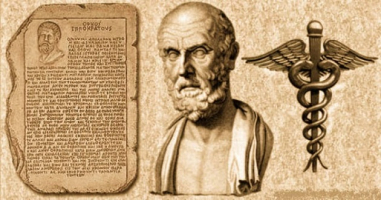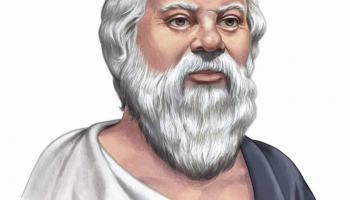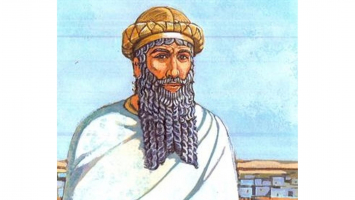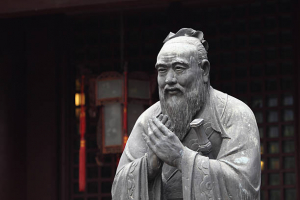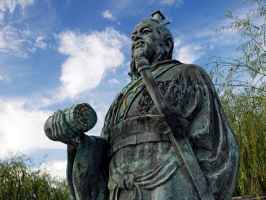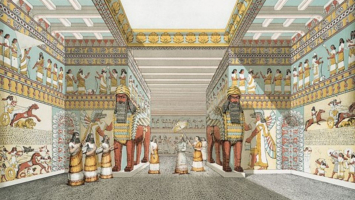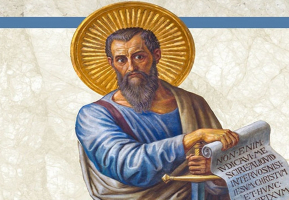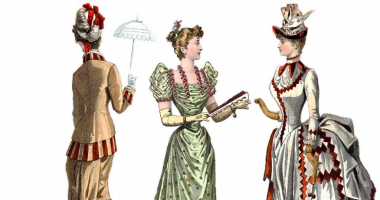Top 13 Outstanding Contributions of Aristotle
In his study of nature, Aristotle demonstrated an aptitude for using empirical and scientific reasoning, a quality his predecessors regularly overlooked in ... read more...favor of their philosophical ideas. He went on to produce several important contributions that are still seen in current mathematics, philosophy, physics, biology, botany, politics, and many other fields. Perhaps this was due to his unwavering curiosity about nature, logic, and reason. He genuinely deserves the title of First Teacher. These are the top ten outstanding contributions of Aristotle, which can help you learn more about his accomplishments.
-
A syllogism is a type of logic in which a conclusion is drawn from two premises. There is usually a common or middle word that connects these premises, but the decision lacks this binding term. Aristotle created the method of logical reasoning, likely the key to all his notable accomplishments. He was the first to develop a simple and reasonable method for concluding the available propositions. These assertions or premises were either given as truths or were only accepted as presumptions. For example, Socrates was a male. Men are all mortal. The conclusion from these two premises is that "Socrates is mortal."
Finding reasoning based on a premise and an inference that shares a characteristic with the given proposition follows a very simple logic. Aristotle's theory of syllogism had an unequaled impact on the development of Western logic and reasoning due to its logical simplicity and ease of usage. However, in the post-Renaissance era that preceded the modern era, humans developed logical strategies that relied less on the uncertainty of implausible premises and more on mathematical deductions, which were far more precise. However, the categorical syllogism theory developed by Aristotle has grown to become much more than simple historical curiosity.
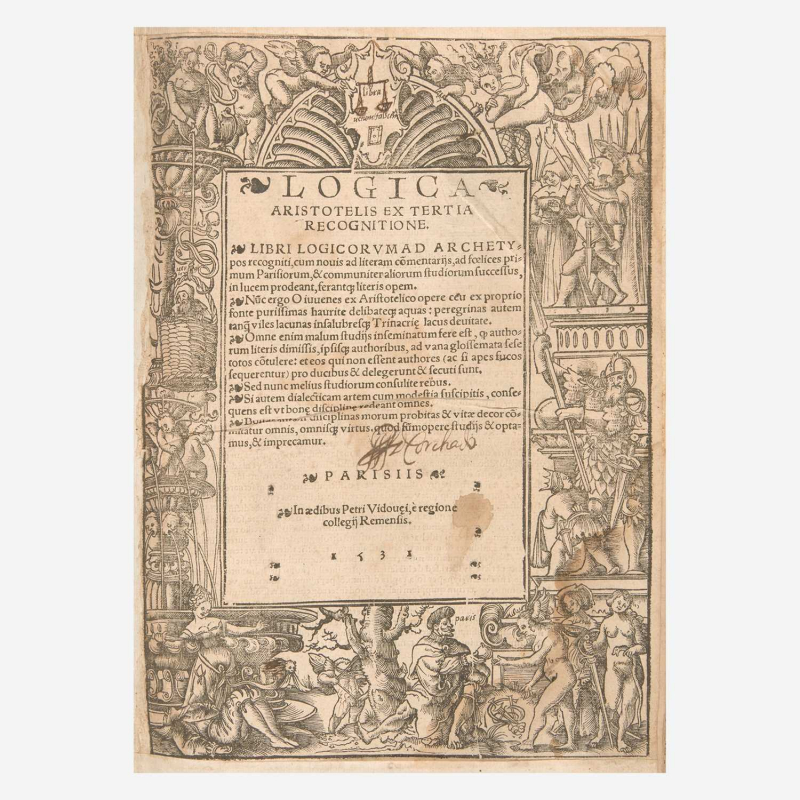
www.freemansauction.com Celebrate Humanity - youtube.com -
Aristotle was the first author in human history to attempt to categorize various creatures in his work Historia Animalium or History of Animals. He divided the animals into categories based on characteristics that they shared. He divided the creatures into two groups, instance, animals with blood and animals without blood, depending on the presence of blood. Aristotle also divided creatures into those that lived on land and those that lived on water depending on their environment. In his view, all living things might be classified into hierarchical groups according to where they were in the hierarchy, from lowest to highest. In this ranking, he ranked the human species top.
He also created the vocabulary for binomials. With the use of this approach, any living thing may now be assigned two sets of names that represent its "genus" and "difference." Aristotle intended for a living thing's genus to stand in for its whole collective family or group. The distinction sets the residing thing apart from other members of the family to which it belongs.
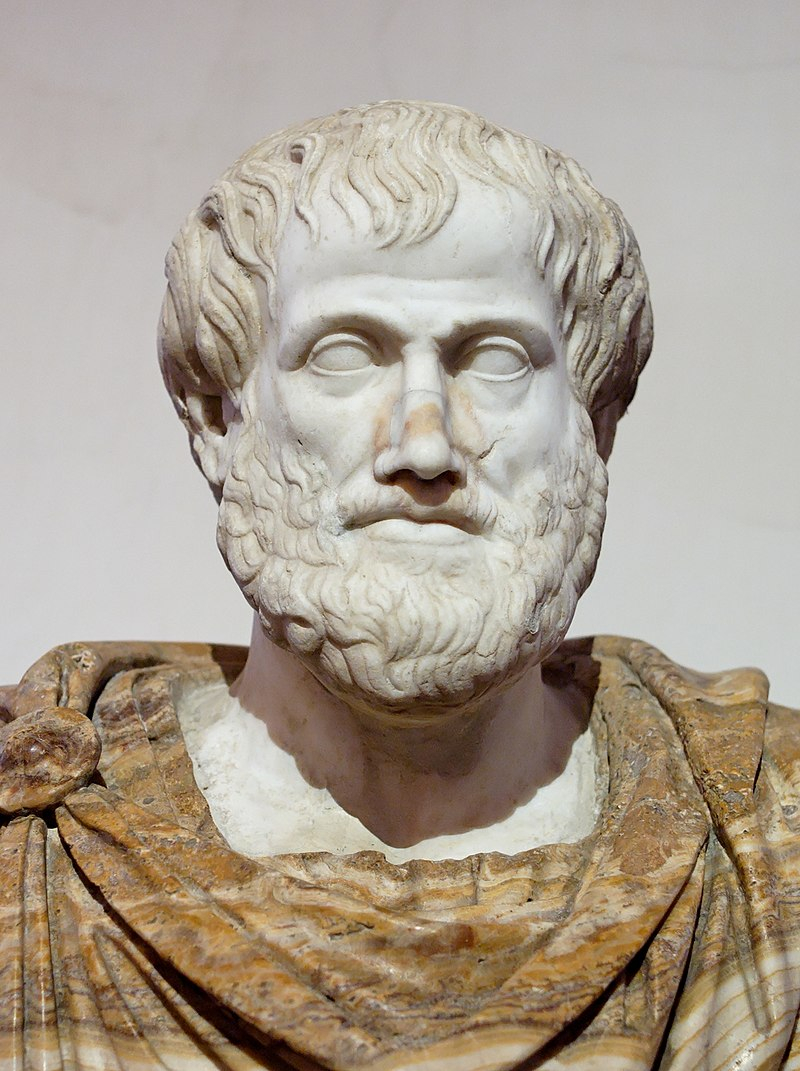
en.wikipedia.org Patricia Davis - youtube.com -
The Father of Zoology is another name for Aristotle. His taxonomy of living things makes it clear that all of his classification methods and numerous other treatises focused solely on various animal species. But he also produced several treatises focused on other zoological topics. His well-known treatises, including History of Animals, Movement of Animals, Progression of Animals, and others, were built on the examination of various land, aquatic, and avian species. Aristotle concentrated on establishing certain strategies that he would employ to make specific observations, in contrast to his forebears who just recorded their ordinary observations of nature.
He conducted various proto-scientific tests and experiments to learn more about the flora and wildlife around him using these empirical techniques, which we may now refer to as "designation" in the current period. One of his earliest observational studies involved dissecting bird eggs at various stages of embryonic development. Aristotle was able to use his observations to analyze the intricate growth of several organs as the embryo turned into a fully-hatched youngling.
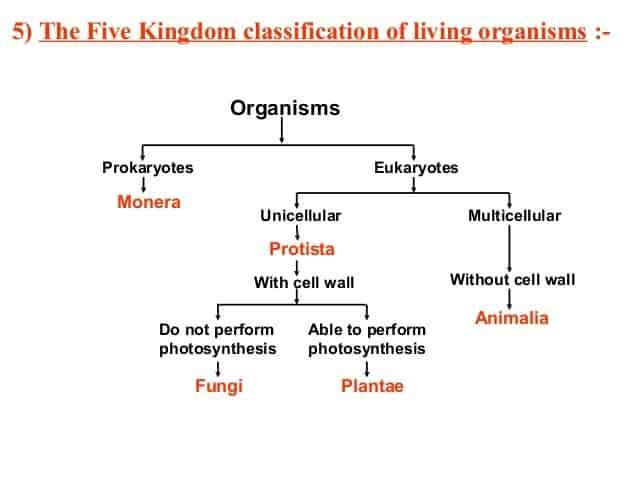
www.ancienthistorylists.com Study Techpedia - youtube.com -
Physics was primarily the study of nature, which was fundamentally similar to change, even for Aristotelian physics. In his book, Physics, he complains about both the character of changes and changes in the natural world. A duality of topics and investigations are covered in Physics, with one book focusing on nature (book 1-4) and the other on motion (book 5-8). Cause, action, time, and location have all been defined, explained, and debated by him. Aristotelian physics was founded on the idea that everything in the universe assumed a state of rest. He distinguished between the earthly realm and the heavenly region by designating them as terrestrial and celestial, respectively.
He also mentioned the four essential components of earth, water, fire, and air. The ether, an unbounded and immutable substance, was the essential component of the celestial or heavenly bodies. Additionally, he contended that heavier items fall to the ground more slowly than lighter ones, suggesting that an object's mass affects how quickly it moves. He was the first physicist, despite being scorned by the brightest professors. His physics studies appear to have been greatly impacted by existing concepts held by both modern and ancient Greek scholars. For instance, the world setup he portrayed in his treatises On Generation and Corruption and On the Heavens bore numerous parallels with claims made by several pre-Socratic period scholars. However, for more than a millennium, his theories were still relevant.
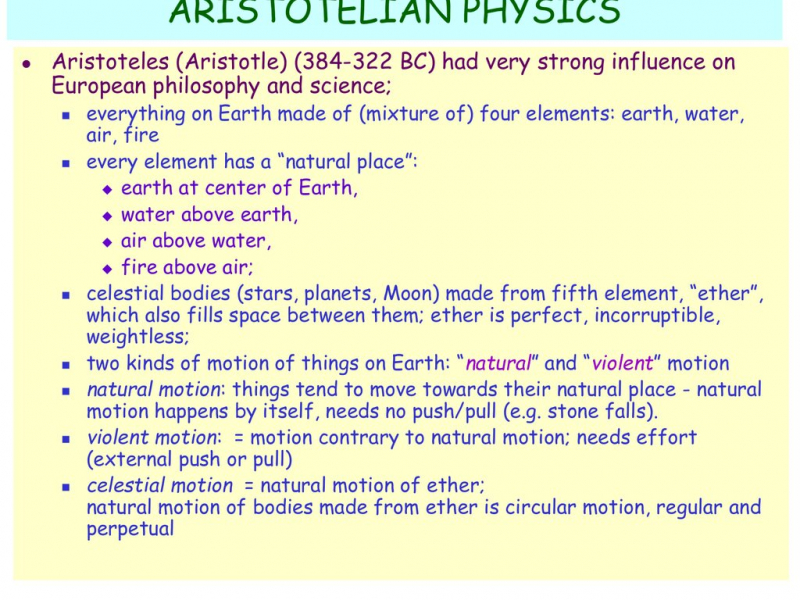
www.yumpu.com The History of Physics - youtube.com -
Aristotle produced one of the earliest thorough writings on psychology, building on the works of preceding philosophers. The treatise, De Anima (On the Soul), focuses on bio-psychology, the study of psychology within a biological framework, rather than spirituality. In the text, the word "soul" could be more accurately rendered as "life-force." Aristotle believed that, like us, animals and plants had souls. Vegetative souls, which include the capacities for growth, feeding, and reproduction, exist within plants. Animals also possess a sensitive soul that includes the faculties of perception and mobility. Humans also have a rational soul, which consists of the faculties of reason and thought, in addition to the two mentioned above.
He separates the human mind into the passive intellect and the active intellect in a more thorough psychological investigation. Aristotle asserts that imitation of something that makes us feel content and happy, even on a surface level, is a trait of human nature. The delicate link that unites human psychology with human physiology may be the most notable aspect of his psychological observations. He made significant advancements over the pre-scientific psychology that came before him, ushering in an era of far more accurate qualitative and quantitative analysis.
The need to reproduce (or "Libido"), which stems from the vegetative or plant soul, was the dominating motivation of all living things, according to Aristotle, who was one of the first to investigate the impulses that propelled life. Id and Ego, in addition to desire, also controlled how we act. For many years, Aristotle's contributions to psychology went uncontested, influencing the development of the field. Furthermore, many of his ideas still have an impact on contemporary psychologists.
Christopher Anadale - youtube.com Grizzly Video Productions - youtube.com -
Aristotle was able to present a highly thorough study of the world around him for his time and era. At this time, the multidisciplinary scientific study of the atmosphere and weather is particularly covered by the name "meteorology." But in his work Meteorologica, Aristotle took a far more all-encompassing approach, discussing the many properties and phenomena of air, water, and earth.
In this book, Aristotle describes the "different affections" that connect the various regions of the earth, as well as the "different affections" that connect air and water, in his own words. His descriptions of water evaporation, earthquakes, and other frequent meteorological events are among the Meteorologica treatise's highlights. One of the oldest depictions of such events is his examination of these many meteorological occurrences, albeit this doesn't necessarily speak to the veracity of his meteorological investigations. According to Aristotle, "subterranean winds" exist and are responsible for both earthquakes and winds. He similarly classified comets, meteors, rainbows, thunder, lightning, and other meteorological phenomena.
Perhaps the first person to express concern about the sluggish rate of geological change was Aristotle. He was one of the first to formulate a theory about the speed of earth's physical changes that was supported by data. As a result, Aristotle can be considered an early geologist. He understood that there are elements on the earth's surface that are transient. Thus, heat may cause lakes to dry up, deserts to become moist, and islands may emerge as a result of volcanic eruptions. In addition, the land and the water can transform into one another. He pointed out that because these changes occur over a much longer period than the usual human lifespan, it is challenging for people to comprehend them.
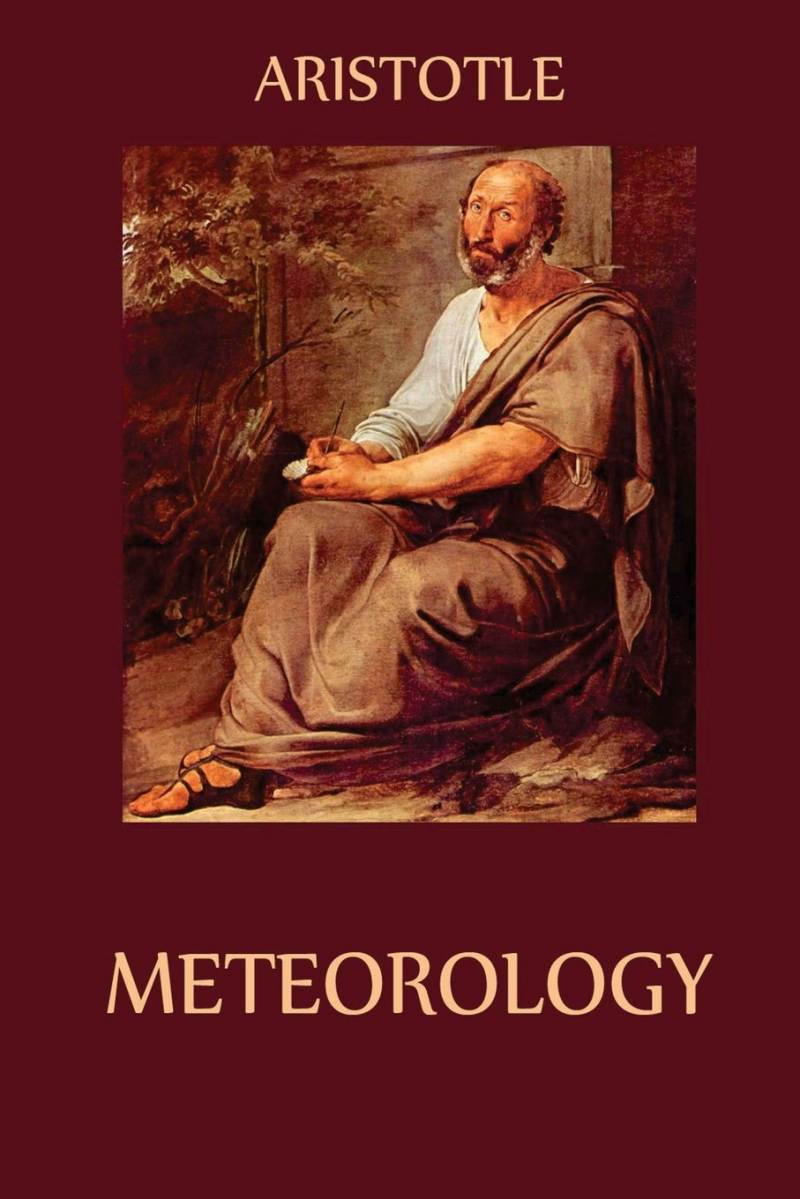
Meteorology - www.amazon.com Audioversity - youtube.com -
It would be unfair to try to do Aristotelian ethics credit by trying to condense all of its complex intricacies into a few phrases. Having said that, Aristotle's interpretations of The Nicomachean Ethics stand out as a key feature. It is a compilation of 10 volumes based on notes from Aristotle's numerous Lyceum lectures and is considered to be his best-known work on ethics. Aristotle's ideas on many moral qualities and their specifics are laid out in The Nicomachean Ethics.
The many social and behavioral attributes of a perfect man are outlined by Aristotelian ethics. A person's courage, for instance, can be measured by how confident they are in the face of fear and defeat. Their temperance, on the other hand, can be measured by their capacity to resist the allure of physical pleasures. Their generosity and magnificence can be measured by the amount of wealth they are willing to donate to the welfare of others. And any ambition cannot be truly magnanimous until it strikes the perfect balance between the honor it promises and the dues it must pay. These and other crucial passages lay the foundation for Aristotle's ethical undertakings. In terms of ethics, Aristotle held that "we are the only narrators of our souls and their active moods, independent of the varied influences of our parents, society, and nature."
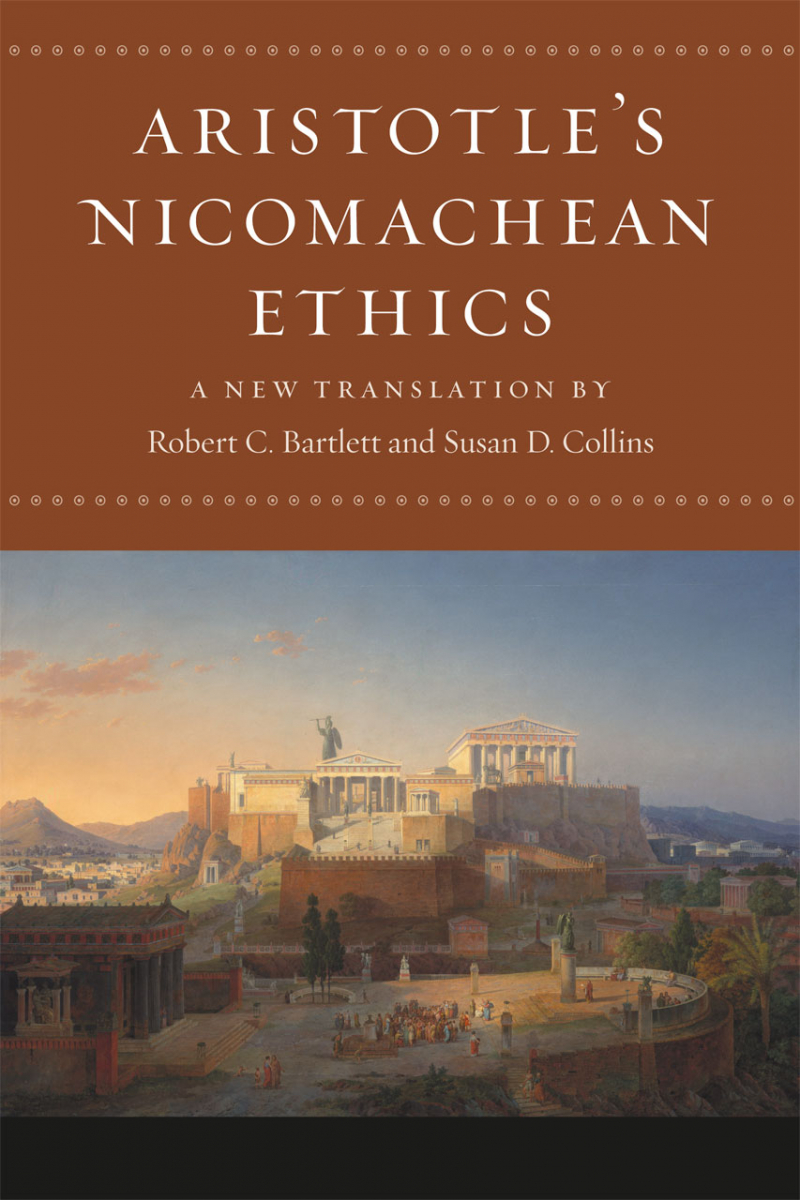
press.uchicago.edu PHILO-notes - youtube.com -
The greatest illustration of how Aristotelian philosophy influenced every other philosophical paradigm that followed is Aristotelianism. The philosophical school that derives its foundations from Aristotle's many philosophical works is known as Aristotelianism. Different facets of Aristotelian beliefs, such as his position on philosophical methodology, epistemology, metaphysics, aesthetics, ethics, and many more, had a significant impact on the course of conventional philosophy.
The truth is that many Western cultures that came after Aristotle's time had Aristotle's concepts thoroughly ingrained in their social and communal thought systems. Members of the Peripatetic school initially rehearsed and defended his intellectual writings. Soon after, the Neoplatonists adopted this strategy and produced a well-researched critical commentary on his well-known texts. Aristotle's works were translated and assimilated into the learning of early Islamic thinkers like Al-Kindi, Al-Farabi, and others. Historians also point out significant references to Aristotelianism in early Islamic philosophy.
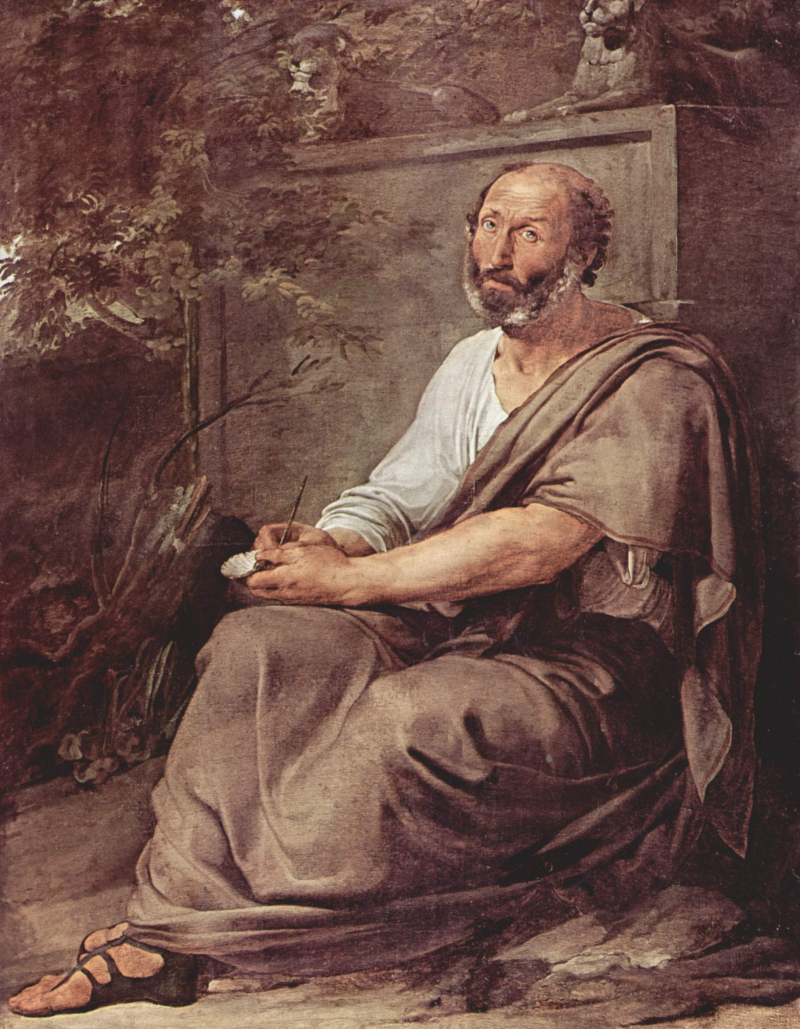
en.wikipedia.org WikiAudio - youtube.com -
Aristotle's political ideas lie under the category of practical science, which is concerned with moral behavior and reforms. His fundamental political tenet is that a state's aims or objective should be to promote virtue and happiness. A state's constitution (politeia), which unites the statesmen and resources in its laws, is its core. These laws function in a prosperous manner and further the goals of the state. The topography and the ethnic makeup of the population are other significant influences, although it is of the utmost importance.
His approach consisted of a detailed study of events, and 158 city-state constitutions were the subject of his research. Aristotle went on to identify other types of political cohesiveness, including democracy, aristocracy, polity, monarchy, and oligarchy. Like his tutor, he favored polity above democracy and did not support it.
He did, however, draw a comparison between political duties and medical duties. It suggested that whichever system monarchy or democracy was better for the state must be used. Aristotle viewed politics as a practical science, thus there was no set way to run things. He promoted careful observation and in-depth research. It may take years to completely appreciate the political theory of Aristotle, to which the Middle Ages authors devoted their whole lives.
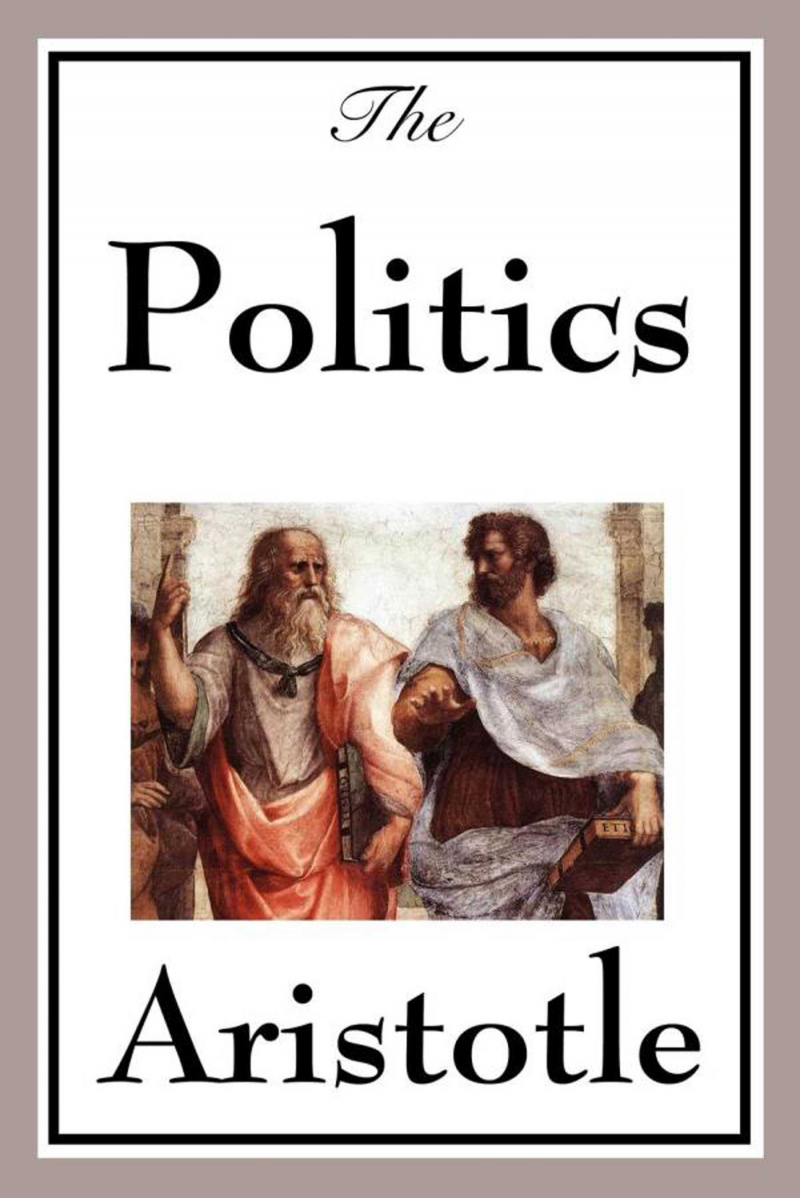
Politics by Aristotle - www.simonandschuster.com FLOWLEDGE - youtube.com -
A subfield of philosophy known as metaphysics is concerned with the fundamental nature of reality, encompassing ideas like being, knowing, identity, time, and space. The term is derived from a later collection of Aristotle's writings known as Metaphysics. Aristotle addresses the impersonal characteristics of life itself, as well as general laws of being, in his book Metaphysics. He refutes Plato's Theory of Forms, which held that everything in the universe was an imperfect expression of an ideal form, and advances his claims on universal laws, amorphous concepts, and life itself. It primarily aims to gain wisdom.
Aristotle contends that information may be channeled scientifically to achieve wisdom rather than relying solely on the senses. Understanding the underlying principles of the universe and how it operates is the only way to get wisdom. The epic, or at least what is now available, covers 14 novels. Each volume focuses on a different subject, such as introductions, the rule of contradictions, and teleological explanations. His hypothesis of changing substances is one of them, and it may be the most contradictory. He categorizes substances into three groups, with the Unmoved Mover serving as an example of the purest sort. He compares it to God and ascribes to it conflicting assertions like being the cause of everything while being impartial.
This notion was deemed lyrical by Aristotle, who instead based his metaphysical inferences on empiricism and science. The nature of existence, how objects exist in the natural world while changing, and how this world may be comprehended are Aristotle's main concerns in Metaphysics. Considered to be among the best philosophical writings is The Metaphysics. It not only had a significant impact on western culture for centuries, but it also had a significant impact on Muslim intellectuals of the Middle Ages.
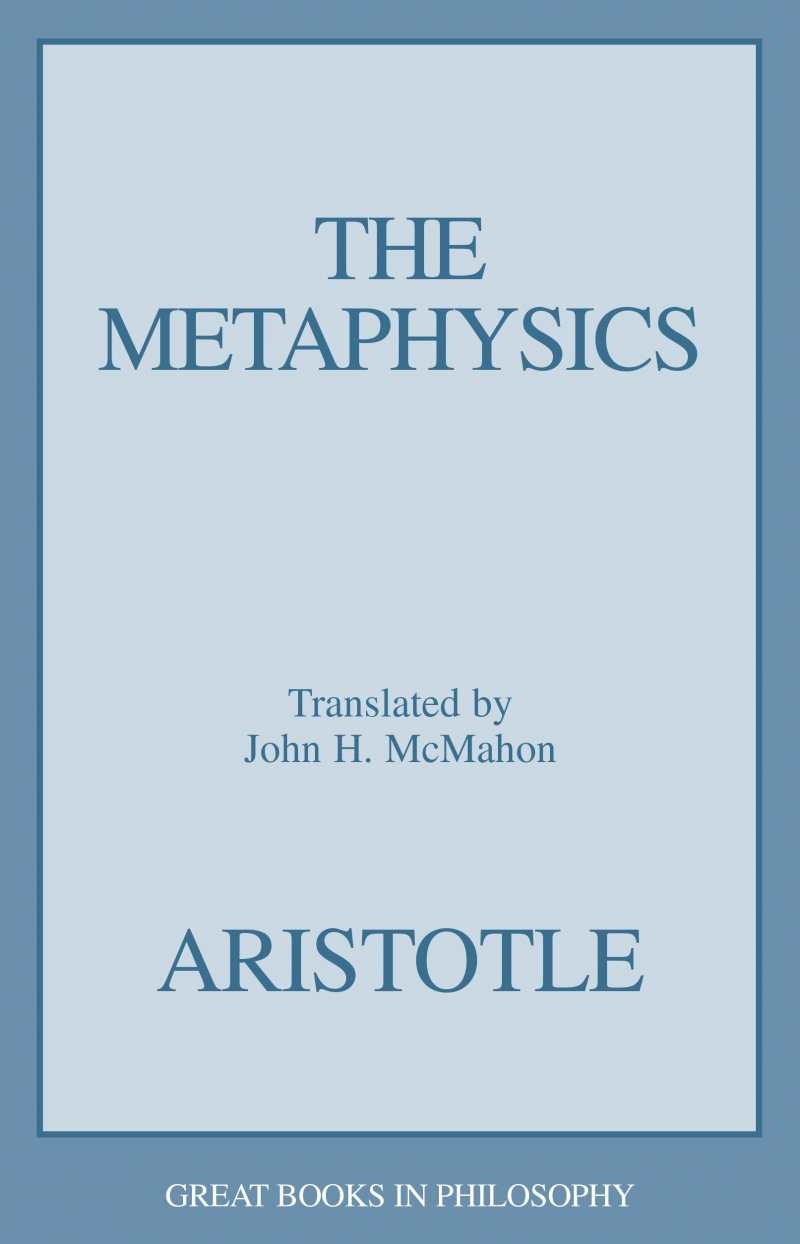
The Metaphysics - www.amazon.com Adam Hands - youtube.com -
The first person to distill analytical economics and combine science into economics was Aristotle. He was a pupil of Plato, although he was not like him in many ways. His views on politics are summarized in the book Ethics and Politics. He believed that the role of the state was to support the statesmen. He stated that the rule-makers and the rules-followers made up an Ideal State. We might thus conclude that Aristotle's beliefs were more traditional than those of Plato.
Additionally, Aristotle believed that private property was preferable to public property since individuals would tend to their business more diligently if they owned it. In this manner, the state would change from communism to capitalism, and everyone would get the portion they are due. His money theory, on the other hand, was the most successful. He gave it worth and said that it was important. He substituted its inherent value for the preexisting notion of "money as a means of trade." He thus favored a non-communist nation where the enforcement of the laws required payment. Aristotle did not compose a book on economics, although authors of the Middle Ages were heavily influenced by him.
WikiAudio - youtube.com Séamus Geimhreadh - youtube.com -
The first known book on dramatic theory is Aristotle's Poetics, which is also the first work of western philosophy to focus on the literary theory the methodical investigation of the nature of writing. The book Poetics has 26 chapters and 50 pages. Tragic fiction, the most advanced genre of art of the period, dominates. It also clarifies Aristotle's opposition to Plato's dualistic and rationalist viewpoints. Epic poetry, tragedy, comedy, dithyrambic poetry, art, sculpture, music, and dance are all considered to be inherently mimesis (or "imitation") by Aristotle in his book Poetics by stating that it is the only form of learning that is ingrained in people. The differences in musical rhythm, harmony, meter, melody, the goodness of the characters, and the presentation of the story are the next criteria he uses to distinguish between imitations.
He refused to categorize art as either excellent or poor, instead emphasizing that it should arouse our emotions and provoke thought. Eventually, he asserted, art will be associated with the ideology of Catharsis, purging all unfavorable feelings and replacing them with a fascinating experience. Particularly caused by experiencing the tragic protagonist's devasting machinations. So Aristotle further categorized imitation according to how their objectives differed. He claims, for instance, that if tragedy is a dramatic copy of those who are better than average, comedy is a dramatic imitation of men who are worse than average. He also makes a distinction between imitations based on how they are imitated, including through story vs character, change against no change, and drama versus no drama.
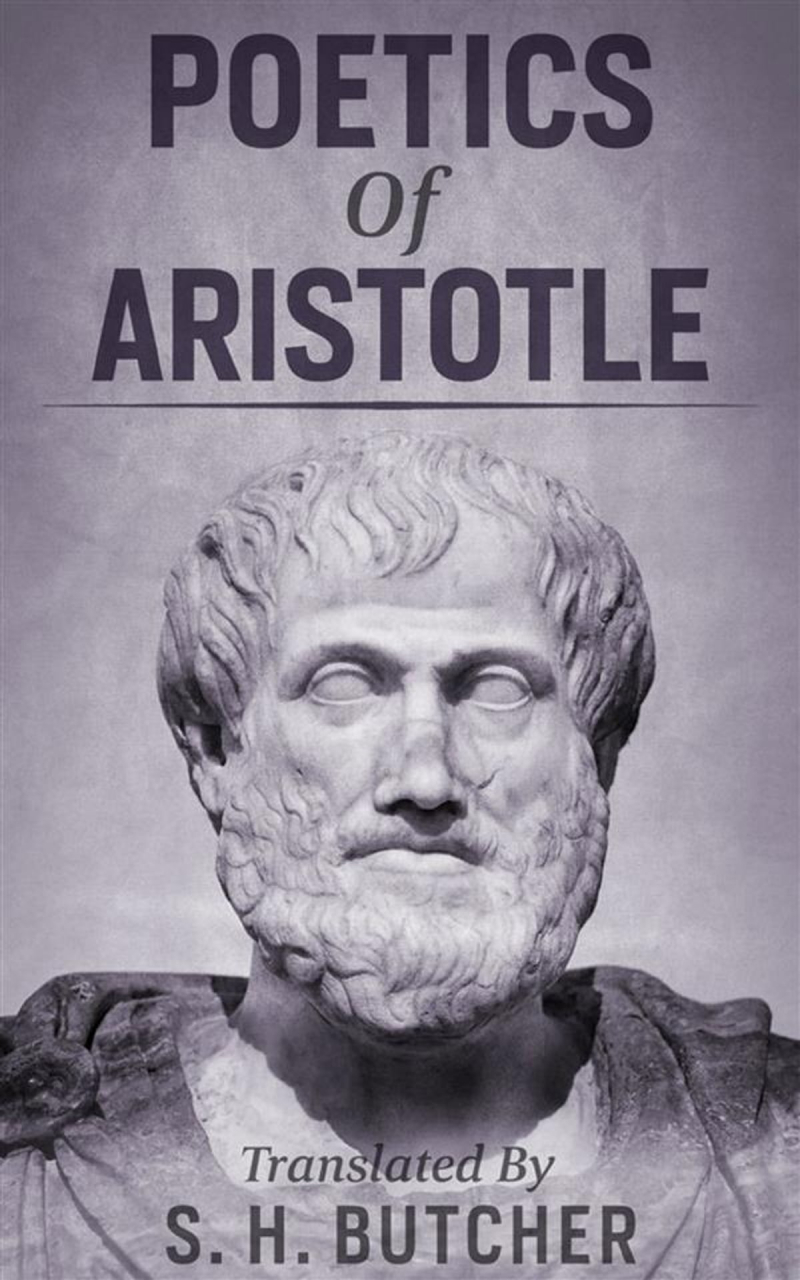
The Poetics Of Aristotle - www.kobo.com Carneades.org - youtube.com -
Aristotle, known as the "Father of Rhetorics," postulated three key components of rhetoric, which he asserted are equally essential for philosophy and dialectics. He has differentiated each component in his book Rhetorics, from reason to the author's point of view to an emotional appeal, which is best developed in the same work. Not alone did roving authors use this method; Roman intellectuals like Cicero also benefited from its effectiveness. Philosophers before Aristotle focused only on logic and dialectic. He described it as being the most compelling and persuasive under every condition possible. It addresses the speaker's credibility, style, and emotions at stake.
Aristotle is also credited for inventing the fundamentals of rhetoric via Rhetoric, a book on the art of persuasion, and with influencing the advancement of rhetorical philosophy from antiquity to modernity. According to Aristotle's Rhetoric, a speaker can convince an audience in three different ways: ethos, which is an appeal to the speaker's moral character; pathos, which is an appeal to the listener's feelings; and logos, which is an appeal to logical reasoning. Additionally, he divides speeches into three categories: epideictic speeches, which deal with praise or blame; forensic speeches, which are used in court to determine guilt or innocence; and deliberative speeches, which asked listeners to choose a subject. If the three points are well-expressed, the speaker may engage his audience.
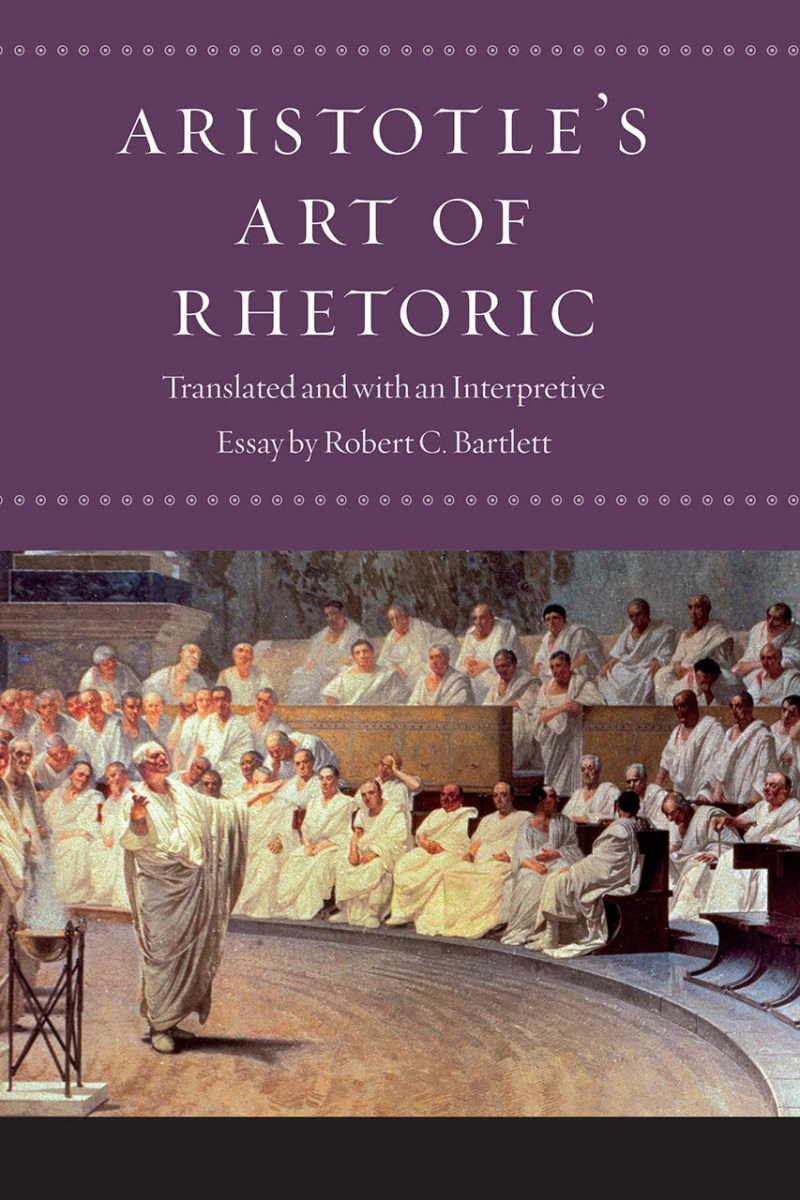
Rhetoric by Aristotle - www.amazon.com TED-Ed - youtube.com















